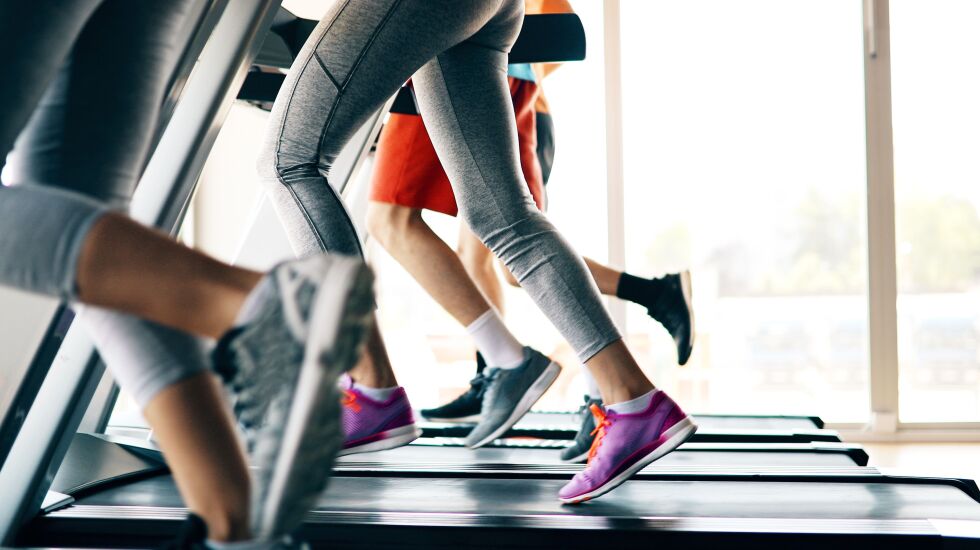
Even cities that provide parks and trails for people to exercise and stay fit have suffered worsening mental health during the coronavirus pandemic.
That’s according to a yearly ranking of the nation’s fittest cities that, for the first time, included data on the pandemic’s toll on mental health.
With social isolation, job losses and supply-chain challenges stressing Americans, nearly 40% of adults in the nation’s 100 largest cities reported poor mental health.
“We found cities ranked in the top 25 tended to score well in personal health indicators, but the one exception was mental health,” said Stella L. Volpe, who chairs the American Fitness Index advisory board.
Volpe said the finding does not undercut evidence linking exercise and physical activity to improved mental health.
The American College of Sports Medicine and Elevance Health Foundation published the annual American Fitness Index ranking the nation’s 100 most populous cities for the past decade and a half. The ranking uses city and county data for 34 variables of personal, community and environmental indicators.
Arlington, Virginia, was the nation’s fittest community for the fifth straight year. Rounding out the top five: Madison, Wisconsin; Minneapolis; Washington, D.C.; and Seattle. Chicago was No. 10.
Oklahoma City ranked at the bottom. North Las Vegas, Nevada, Tulsa, Indianapolis and Louisville were in the bottom five. The list is online at americanfitnessindex.org/rankings.
How much did mental health suffer?
Adults who hadn’t reported anxiety or depression before were more likely to report poor mental health during the pandemic. Causes included social isolation, job loss and working in high-risk service jobs that were more likely to expose people to COVID-19, the report said.
Among adults who never had a mental health struggle, 58% perceived that the pandemic damaged emotional or mental health.
More than 51% of adults in New Orleans and Laredo, Texas, reported at least one poor mental health day the previous month. Residents of San Francisco, Washington and San Jose, California, rounded out the lowest-scoring cities on mental health even though the three cities ranked among the healthiest.
The finding follows a federal Centers for Disease Control and Prevention survey of nearly 800,000 adults through Feb. 1, 2021, that found an increasing share of the population reported anxiety and depression systems.
Can physical activity improve mental health?
Physical and mental health are closely linked. Research shows aerobic exercise and strength training can help prevent or reduce symptoms of anxiety and depression, the report said.
The CDC recommends at least 150 minutes a week of moderate aerobic activity and strength training twice a week. More than one of five adults didn’t exercise at all in the past month, and nearly half didn’t get enough aerobic activity, according to the report.
“Research strongly shows that aerobic and strength training are effective in preventing and reducing anxiety and depression and improving mood, health and quality of sleep,” Volpe said.
How can cities counter mental health struggles?
American College of Sports Medicine representatives said cities, community and business leaders can act to improve overall health.
One example of how that can be done, they said, is by opening access to green spaces in neighborhoods to make places more walkable. For instance, Arlington, which incorporated biking and walking as part of the county’s master transportation plan, has 527 miles of sidewalks and 14½ miles of hiking trails.
Communities also can obtain federal funding for mental health programs under the bipartisan gun-safety law signed last month by President Joe Biden. In addition to bolstering background checks for gun purchases, the new law includes $8.6 billion to help support certified community behavioral health clinics in every state.
Dr. Joe Parks, medical director of the National Council for Mental Wellbeing, said eight states that opened these clinics as part of a pilot Medicaid program have significantly improved access to mental health and drug and alcohol treatments. The legislation will allow up to 10 states each year to add such clinics, but states must pursue funding.
“The federal government is offering an opportunity,” he said. “But it’s up to the individual states to pick up that opportunity and take advantage of it to give people better access.”
Read more at usatoday.com.







